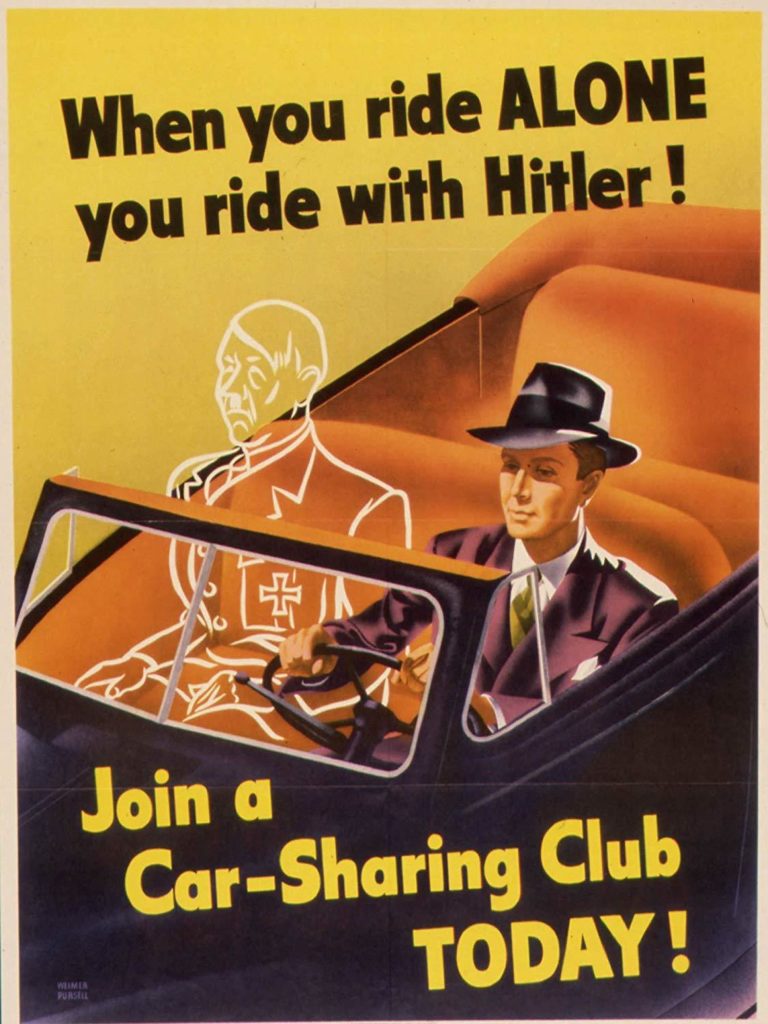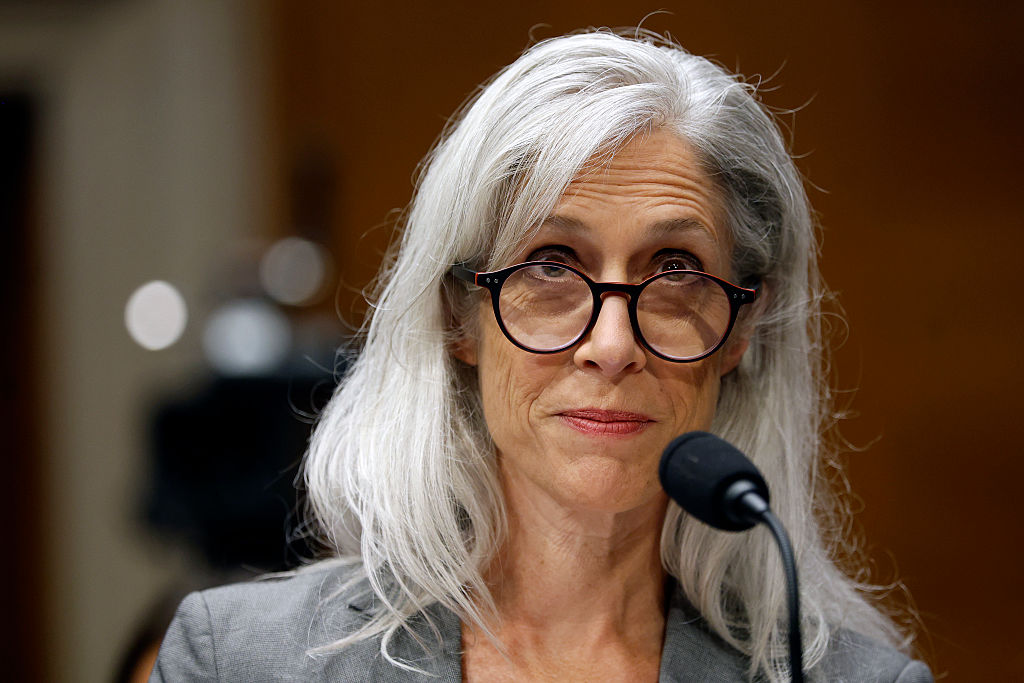During World War Two, ordinary citizens were encouraged to plant victory gardens, collect scrap metal and carpool to save fuel, always with the understanding that these measures would somehow contribute to victory. The propaganda of the time was heavy on the same ‘do your part’ messaging that we’ve seen during the COVID pandemic, giving meaning to people’s sacrifices by characterizing their efforts as a patriotic duty and a moral imperative — and by strongly implying that those who balked at those sacrifices were on the side of the bad guy. One of the most famous posters from the era shows a snappily-dressed man behind the wheel of a car, with a ghostly, familiar figure sporting a toothbrush mustache in the passenger seat.
‘When you ride ALONE,’ the poster warns, ‘you ride with Hitler!’

The moral and patriotic imperatives of our current moment are different. (A 2020 version of that same poster might read, ‘When you ride TOGETHER, you ride with Death!’) But they offer the same comforting assurance: that together, if we just try hard enough and follow the rules, we can beat this thing.
Therein lies the problem.
We cannot beat this thing.
The notion that we could literally stop the spread of COVID by locking down and vaccinating it out of existence was always a fantasy. As National Geographic recently noted, ‘only two diseases in recorded history that affect humans or other animals have ever been eradicated’. (Only one of these viruses, smallpox, was a danger to human beings; the other is a bovine disease.) Every other virus, from ebola to influenza to the bubonic plague, still exists among us; we’ve just learned to live with them, and to control them as best we can through inoculation, preventive measures, and treatment for those who get sick.
Until very recently, we lived with them relatively easily. Take the flu: every year, it ripples through the American population. And every year, people deal with it according to their own personal set of priorities and risk tolerances. Some are content to take their chances. Some get a flu shot to protect themselves or their loved ones. Some take additional precautions because they’re immunocompromised or otherwise at above-average risk. But every year, no matter what, tens of millions of Americans catch the flu. Some get very sick. Some die.
Yet we still don’t assign a moral element to the flu season — even though every person who dies from the flu caught it from somebody else. Nobody hisses through their teeth at the selfish irresponsibility of people who don’t upend their lives to avoid getting the flu; nobody tells you that you have an individual moral duty to stop the spread of endemic viruses, generally. Co-existing with other creatures is the price of admission for planet earth, and that includes the millions of microorganisms that have evolved over the course of millennia to survive by making us sick.
But COVID — and more specifically, the messaging around it from our authority figures — changed how we conceive of our relationship with viruses. All those months of being told to mask up, stay home, and keep our distance have instilled in a fearful population the seductive illusion of control. We’ve been led to believe that if we just care enough and try really hard, we can stop getting sick and save lives. Suddenly, the only moral position is to do everything within your power to avoid illness, no matter how extreme, no matter how much it disrupts your life or hurts your livelihood, no matter the brutal costs it might exact elsewhere. And if you get sick anyway? This is somebody’s fault. Someone, somewhere, did this to you.
‘The fact is, if you get infected, even if you are without symptoms, you very well may infect another person who may be vulnerable,’ Anthony Fauci said on ABC last week. ‘So in essence, you are encroaching on their individual rights.’
This is the flip-side of the delusion that we can control our way to zero COVID: the specter of the noncompliant villain who’s keeping us from getting there. Those who dissent, who express skepticism, who want to question the rules instead of simply following them? They’re not just asking questions; they are ‘literally killing’ people.
This type of rhetoric may have been a morale-booster amid lockdowns, mask mandates, and the COVID death count banners that have become part of the permanent landscape on every mainstream cable news channel. But it’s hard to overstate how unwise it is to inject blame into the conversation about an airborne virus. The pandemic has already decimated our ability to assess and tolerate risk, as our public health authorities keep offering mixed messages on everything from masking to school openings to the effectiveness of the vaccine. But comments like Fauci’s do something worse, injecting a toxic, corrosive element into the heart of the social contract. A society in which people fear and mistrust each other is a society that cannot function. This is what we risk.

























